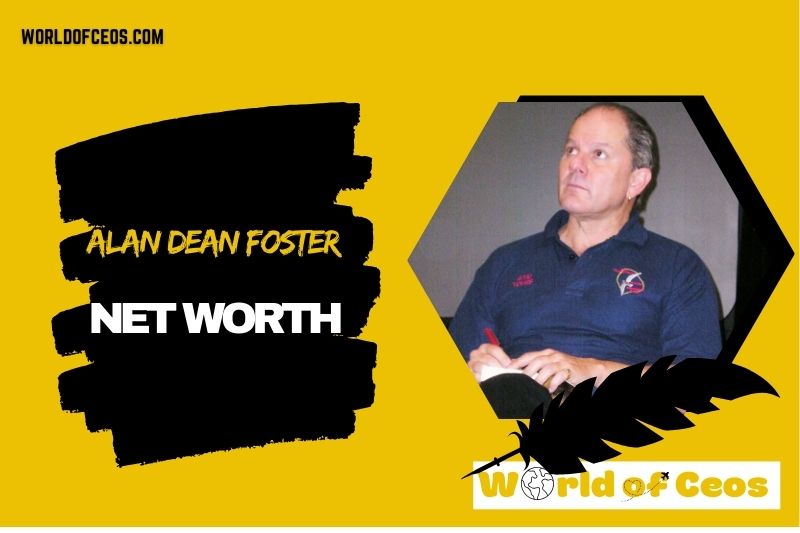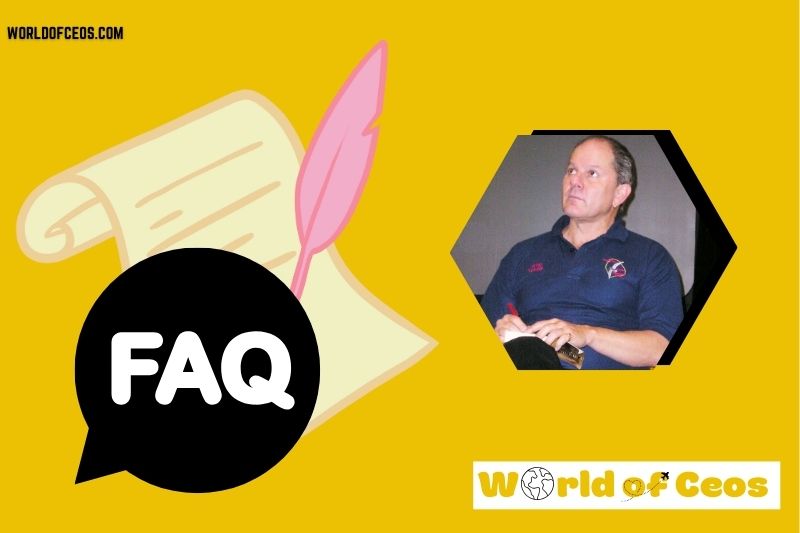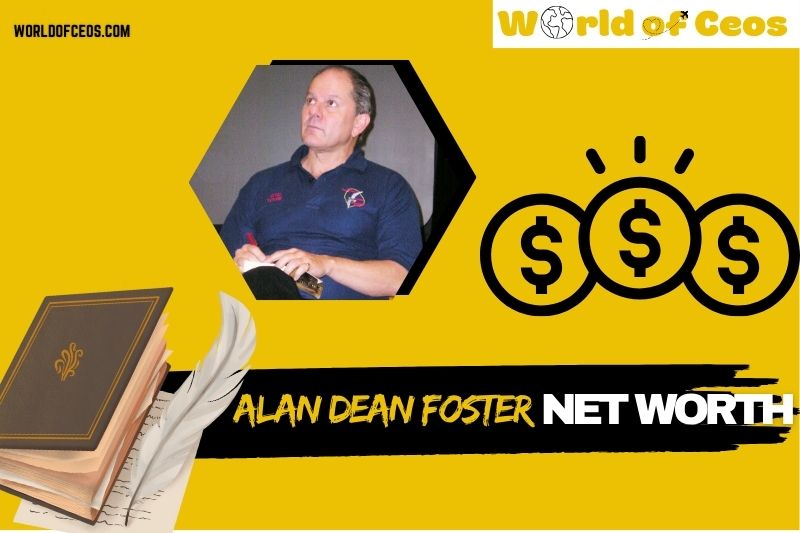Today we’re diving into Alan Dean Foster net worth and the story of how he amassed his wealth.
From his early days ghostwriting Star Wars to creating beloved book series like Pip and Flinx, Foster’s journey is a fascinating blend of creativity, passion, and some seriously smart financial moves.
His career spans the world of novelizations, fantasy, and science fiction, which have contributed to his steady income and made him a go-to name in the industry.
Let’s jump into how Foster built his empire in the sci-fi and fantasy world, from the franchises he’s associated with to his major financial milestones.
Quick Facts
| FACT | DETAIL |
|---|---|
| Real Name | Alan Dean Foster |
| Popular Name | Alan Dean Foster |
| Gender | Male |
| Birth Date | November 18, 1946 |
| Age | 77 |
| Parents | N/A |
| Siblings | N/A |
| Birthplace | New York City, New York, USA |
| Nationality | American |
| Ethnicity | N/A |
| Education | University of California, Los Angeles (UCLA) |
| Marital Status | Married |
| Spouse | JoAnn Oxley |
| Children | N/A |
| Dating | N/A |
| Net Worth | $5 million |
| Source of Wealth | Writing, novelizations |
| Height | N/A |
What is the Net Worth Of Alan Dean Foster in 2024?

As of 2024, Alan Dean Foster’s net worth is estimated at $5 million.
His wealth isn’t only from his original works like the Spellsinger and Pip and Flinx series but also from adapting some of Hollywood’s biggest franchises, like Star Wars and Star Trek, into novel form.
When stacked up, Foster’s net worth places him alongside others in the science fiction writing field, although his peers in Hollywood-adapted novels have reached different financial milestones.
Here’s a quick look at a few authors and creatives who, like Foster, have transformed their fiction into financial success:
- George Lucas
- Gene Roddenberry
- James Kahn
- Donald F. Glut
- Timothy Zahn
- Philip K. Dick
- Frank Herbert
- Arthur C. Clarke
- Michael Crichton
- Stephen King
If you’re curious about high earners in other fields, check out the top authors!
Alan Dean Foster Salary and Finance Overview

How He Built a Financially Successful Career in Science Fiction and Fantasy
Alan Dean Foster’s journey to financial success is a roadmap for anyone looking to make it big in writing.
Starting with science fiction and fantasy, Foster caught his first break as the ghostwriter for George Lucas’s Star Wars novelization.
This project was a massive hit, and while Lucas’s name was on the cover, Foster’s storytelling brought the galaxy far, far away into book form, establishing his skill in adapting beloved cinematic worlds.
Soon after, he became the go-to author for novelizing major Hollywood franchises, including Star Trek, Alien, and even Transformers.
Each franchise brought him not only income but a fan base eager to see their favorite movies turned into books.
Foster’s reputation as a talented adapter made him a well-known figure in both film and literary circles, which ultimately helped him secure multiple lucrative deals in a genre with a dedicated readership.
Early Career Milestones and Breakthroughs That Shaped His Earnings
Early on, Foster wasn’t just writing adaptations; he was building a name with original works like the Spellsinger series and the Humanx Commonwealth Universe.
These books were embraced by sci-fi fans, providing Foster with consistent royalties over the years.
With each new release, he cemented his brand as a go-to sci-fi and fantasy author, which later helped him land big-budget franchise adaptations.
His breakthrough in adapting Star Wars and then Splinter of the Mind’s Eye set him up for larger opportunities in the industry, securing him a path toward future earnings with franchises that saw him as a valuable storyteller.
Major Franchises and Their Impact on His Wealth
The franchises that define Foster’s career—Star Wars, Star Trek, and Alien—weren’t just about prestige; they were major revenue streams.
The success of Star Wars alone, and his continued work in this universe with novels like The Approaching Storm, meant Foster was continuously bringing in revenue.
His work on Star Trek novelizations, including Star Trek: The Motion Picture and its sequels, also contributed heavily to his financial success.
By adapting these popular movies into books, he was able to tap into a loyal fanbase, which turned into consistent royalties and long-term sales.
His Original Book Series and Financial Contributions
Foster’s Pip and Flinx series has 14 books, making it one of his most well-known projects outside of movie adaptations.
With a dedicated fanbase, each book release not only brought initial earnings but also guaranteed royalties from re-releases and special editions.
Similarly, Spellsinger, with its magical and musical themes, became a cult classic in the fantasy genre.
These original series not only helped Foster diversify his income but established his name independently, outside of Hollywood franchises.
He also dabbled in trilogies like The Damned and The Tipping Point, each of which contributed to his income, albeit in smaller amounts compared to his biggest titles.
Accolades and Awards That Boosted His Career and Income
In 2008, Foster received the Grand Master Award from the International Association of Media Tie-In Writers, a nod to his contributions to the field of media tie-ins.
This award, while not directly financial, gave him a credibility boost and likely opened doors for more projects and partnerships.
Recognition in the literary world often correlates with an increase in book sales and renewed interest in an author’s existing works.
With the award, Foster solidified his legacy, ensuring readers and fans viewed him as a top-tier writer within the media tie-in community. Awards can increase an author’s value in the eyes of publishers and studios, leading to better contracts and, by extension, greater revenue.
His Relationship with Disney and the Royalty Dispute
In 2020, Foster’s relationship with Disney hit a snag over unpaid royalties for his work on the Star Wars and Alien books.
This dispute caught public attention and eventually resolved in 2021, with Disney agreeing to pay Foster his owed royalties. This wasn’t just a win for Foster but set a precedent for other authors facing similar issues in the industry.
The settlement bolstered his earnings and served as a reminder of the importance of author royalties, especially with large corporations.
It reinforced Foster’s commitment to fair compensation, which resonated with fans and fellow writers.
Sources of Wealth Beyond Writing: Lectures, Appearances, and More
Foster isn’t just about the books; he’s also a familiar face at sci-fi conventions, lectures, and book signings.
Through these appearances, he reaches fans directly and earns additional revenue. His presence at events dedicated to science fiction and fantasy makes him a staple in the community, which also attracts new readers.
Brand partnerships and special editions of his books—often re-released as collectibles—add to his income as well.
While not every author finds success beyond writing, Foster’s consistent participation in fan-driven events has proven a profitable venture and deepened his connection with his fanbase.
FAQs About Alan Dean Foster

What inspired him to become a science fiction writer?
His early fascination with fantasy and science fiction worlds inspired him to pursue a writing career. His love for these genres helped him become a natural fit for novelizing film franchises.
How did he get the opportunity to work on the Star Wars novelization?
He was chosen to ghostwrite the original Star Wars novel by George Lucas himself, helping Foster step into the world of Hollywood tie-ins.
How many books has he written?
He has authored over 20 standalone novels, multiple book series, and various tie-ins for popular films.
Which awards has he won?
In 2008, he won the Grand Master Award from the International Association of Media Tie-In Writers for his significant contributions to the field.
What are his most famous works?
His most famous works include the Star Wars novelization, the Pip and Flinx series, and the Spellsinger series.
How has his work on major franchises impacted his career?
Working on popular franchises like Star Wars and Star Trek brought him a large following and steady income through royalties.
Did he have any legal issues with Disney?
Yes, in 2020 he had a royalty dispute with Disney regarding unpaid royalties for Star Wars and Alien novelizations, which was resolved in 2021.
What are his original book series?
Some of his original series include Pip and Flinx, Spellsinger, and The Damned trilogy, which have garnered loyal followings.
How does he stay connected with his fans?
He frequently attends conventions, participates in lectures, and engages with fans directly, boosting both his reputation and income.
What is his educational background?
He studied at UCLA, which provided a foundation for his writing career.
Conclusion
So that’s the breakdown of Alan Dean Foster net worth and his journey through the world of sci-fi. If you enjoyed this, feel free to comment, share, or explore more on worldofceos.com.

